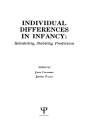Challenging Freud’s assumption that an individual first develops intrapsychically and is only later confronted with the demands of external reality, Carolyn Saari posits that human beings initially construct a picture of their immediate environment and then construct their identities within that environment.
The Environment is an argument in three parts. Part 1 discusses psychoanalytic and developmental theory, showing that while such theory has assumed the existence of an environment, it has taken for granted and therefore left unexamined its role in human development. Michel Foucault’s theory of social control provides the framework for Part 2, which examines psychotherapy’s capacity either to liberate or to repress the client. Part 3 relates the practical benefits and broader implications of an inclusion of environmental considerations in the practice of psychotherapy.
Spis treści
Part 1 Theory
1. The Environment in Emotional Experience
2. The Development of Meaning
3. Culture and Social Control
Part 2 Domination or Liberation?
4. Inner Life and the Possibility of Freedom
5. Person and Environment Interactions
6. Culture, Sexuality, and Impingement
Part 3 Implications for Practice
7. Concordance: The Therapeutic Culture
8. The Importance of Relationships
9. Symbolization: Connections Between Internal and External Worlds
O autorze
Carolyn Saari is a professor of social work at Loyola University of Chicago. She is the author of
Clinical Social Work Treatment: How Does It Work? and
The Creation of Meaning in Clinical Social Work and editor of the
Clinical Social Work Journal.











